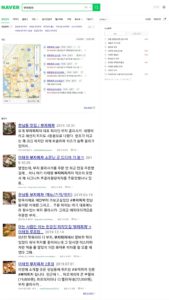Ranked as having one of the world’s fastest internet connections, South Korea is famous for its high-speed internet connectivity and the fact that Wi-fi is ubiquitous within its borders, being available almost everywhere in the country. When we zoom in on their internet usage behavior, South Koreans are using many services from the Naver corporation, especially their proprietary search engine — which is usually set as their desktop default called ‘Naver’. This local search engine accounts for almost 78% of the market share, overshadowing another Korean brand ‘Daum’with 20% and the internationally famous Google with 2%.
In this article, we’ll talk about the background of the Naver search engine, why it’s a major search engine and what marketers should do in order to be visible in Naver and thus increase their odds of being successful while doing business in South Korea.
What is Naver
Naver’s name comes from ‘navigate’. Founded by a group of ex-employees of Samsung in 1999, Naver has been the dominant search engine in South Korea ever since. This Korean search engine is also a pioneer in the world of comprehensive searches, where different categories as articles, videos, images and files are all present in one single page — similar to Yahoo!
Naver’s extensively localized services make it different from Google
Naver owns many extensive brands at the moment, the most famous of which are:
- Webtoon: an online digital comic platform, which is also famous in Japan and Thailand.
- Knowledge IN: the first online Q&A platform in the world, similar to Yahoo Answers!
- Junior Naver: the only online portal for kids still operating in Korea, after Daum Kids and Yahoo Kids closed down.
- Naver Blog: previously called Naver Paper.
- Naver Cafe: an online platform where each member can create their own internet community.
As you can see, Naver isn’t acting just like a search engine, it’s more of an online lifestyle platform where people can search, connect with others in the community they created, enjoy comics, read a blog, etc. The list goes on, and it’s no wonder that it has over 42 million registered users, which is around 80% of the population of South Korea.
Why Naver is beating Google in Korea?
Naver (sometimes called ‘the Google of South Korea’) is what people think of when you mention a search engine in South Korea, much like Baidu in China. The key to how they managed to get an overwhelming share of the market is their unique search algorithm, which is built around the Korean language. This enables the Naver search engine to offer both quality and quantity in their search results, something that other search engines are still struggling with.
I spent some time interviewing my colleagues here in Seoul, asking them which search engine they’re using on a daily basis, and why. The answer is as I expected — all of them are using Naver. Most of them claimed the same reasons as to why Naver is a favorite. Firstly, the search results they get are always highly relevant to them. Secondly, they prefer Naver’s layout and the way it displays content by categories.
This is an example of what happened when I tried to search in both sites, using the name of my favorite pizza place as a keyword, in Korean (because this is what they do in South Korea). It’s clear that Naver does deliver more results, and categorized things differently from the way Google does.
Google:
Naver:
What you need to do in order to be searchable in Naver
- Needless to say, the very first and most crucial step is to localize your website into Korean!
- Collaborate with a local online agency, because they probably have a deeper and more thorough understanding of the Korean language, culture and consumer behavior.
- Tailor your advertisement campaign to suit each of Naver’s platforms, including all their content categories such as Knowledge IN, Naver Blog, Naver Cafe, and so on. Each of these segments has its own algorithm, and you want to be present and consistently informative in all of them.
In short:
South Korea has a distinct culture and language. To be successful in this market, you have to understand Korean consumers; both language and culture-wise. Invest in your online presence, and make sure your product or service can be found using the Naver search engine. I hope you will find our suggestions useful and worthwhile, see you again in the next article!



